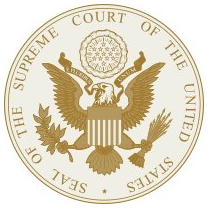
Last January, readers may recall our article about Georgia v. Public Resource Org Inc. (“PRO”). At the time, that case had been successfully appealed to the United States Supreme Court (SCOTUS). We now have a decision. PRO involved the issue of whether the Official Code of Georgia Annotated [OCGA] was subject to copyright protection. Here were the facts:
Georgia publishes and sells the Official Code of Georgia Annotated. Interestingly, the Lexis Corporation under contract with the State of Georgia drafts the annotations under the supervision of the Georgia Revision Commission. Public Resource Org (PRO) is a public service organization that publishes free-of-charge statutes and other public documents. It published the Official Georgia Code Annotated online, ignoring numerous cease and desist letters served on it by the State of Georgia. All agreed that the statutes themselves were public domain, so the question is whether the state of Georgia can own a copyright in the annotations accompanying the “official” code or whether they fall within the government edicts doctrine.
You may recall that the 11th Circuit Court of Appeals decided in favor of PRO on the basis that even though the annotations were not the law, they were sufficiently “law like” to qualify as government edicts and, therefore, not copyrightable.
On April 27, 2020, SCOTUS rendered its opinion, affirming the Circuit Court, but, interestingly, based on different reasoning. According to the Supreme Court majority, it is not whether the annotations carried the “force of law” that is key. Rather, it’s the identity of the author – the Georgia State Legislature – that is determinative. Here’s why. The Court wrote that the nineteenth century precedents — the Peters, Banks, and Callaghan cases — did not turn upon whether the works at issue carried the force of law but, rather, upon the identity of the author. Under those cases, judges have authority to make and interpret law but cannot be deemed the “author” of the law. So, any work created by a judge, whether opinions or annotations, are not copyrightable. Court reporters and other private citizens, according to the nineteenth century precedents, on the other hand, can author annotations outside of the government edicts doctrine. Those annotations may be subject to copyright protection because they are not the law and not authored by judges. According to SCOTUS, the guiding principle is that “no one can own the law”:
Rather than attempting to catalog the materials that constitute “the law,” the doctrine bars the officials responsible for creating the law from being considered the “author[s]” of “whatever work they perform in their capacity” as lawmakers. Ibid. (emphasis added). Because these officials are generally empowered to make and interpret law, their “whole work” is deemed part of the “authentic exposition and interpretation of the law” and must be “free for publication to all.” Ibid.
The Court court extended this doctrine to legislators, acting as legislators, noting that states have long considered the government edicts doctrine applicable to legislative materials. Hence, the annotations of the OCGA, although authored by a Lexis company, were supervised by the Georgia Code Revision Commission (GCRC) and were contractually “works for hire.” The Court observed that the GCRC is an arm of the state legislature, members of whom are legislators, and receive funding and staff from the legislature. These facts were sufficient to persuade the Court that the Georgia state legislature is the constructive author of the annotations. Annotations authored under these facts are government edicts not protectable under copyright law.
It is worth noting that Justice Thomas dissented on grounds that Congress, not the Supreme Court should determine whether the government edicts doctrine should be extended to arrangements like that between the GCRC and Lexis. Justice Ginsburg dissented on grounds that OCGA annotations cannot be considered law because they were not created as part of the legislative process.
The PRO decision is not insignificant. Many states have similar arrangements to that between Lexis and the state of Georgia. Going forward, these states cannot seek protection from the Copyright Act and profit from the sale of annotated statutes. Instead, they must make them freely available to the public. On the other side of the coin, companies like Lexis may create their own annotated copies of statutes and profit from their sale as they have been doing for decades. Law books have never been cheap!
–Adam G. Garson, Esq.

